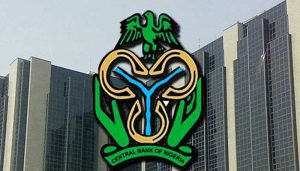
The Naira experienced a decline against the US Dollar in the official market, closing the week at N1,537.96/$1, amidst persistent demand pressures that continued to undermine the currency’s value.
This decrease coincided with a significant downturn in forex turnover, which plummeted by 74% to $84.10 million.
Both official and black-market exchange rates witnessed a devaluation of the Nigerian Naira against the dollar, further compounded by a substantial surge in inflation as reported by the National Bureau of Statistics (NBS) for January 2024.
The inflation rate surged to 29.90%, marking a significant increase from the 28.92% recorded in the previous month.
This data reflects a noteworthy uptick in the headline inflation rate for January 2024, with 0.98% points increase compared to December 2023 figures.
These developments persist despite the Central Bank of Nigeria’s (CBN) implementation of several policies aimed at enhancing the supply of foreign exchange (forex).
Part of the recent policies was the CBN’s announcement that it has stopped international oil companies (IOCs) operating in Nigeria from immediately remitting 100% of their forex proceeds to their parent company abroad.
The domestic currency depreciated at the end of the week by 2.58% to close at N1,537.96 to a dollar at the close of business, data from the NAFEM where forex is officially traded, showed.
This represents an N39.71 gain or a 2.58% increase in the local currency compared to the N1,498.25 closed on Thursday.
The intraday high rose at the peak of N1631/$1, while the intraday low was N1000/$1, representing a wide spread of N631/$1.
According to data obtained from the official NAFEM window, forex turnover at the close of the trading was $84.10 million, representing a 74% decrease compared to the previous day.
Similarly, the naira depreciated at the parallel forex market where forex is sold unofficially, the exchange rate quoted at N1,590/$1, a decrease of 1.57% against N1,565 it closed the previous day,
The Great British Pound (GBP) closed at £1/N1,930, a decline of 1.04% from £1/N1,910 recorded the previous day while Naira equally dropped against the Euro by 1.21% to close at N1650/EUR1 against NI630 / EUR1 reported the previous day.
In the cryptocurrency market where forex is sold using stablecoins, the Naira also settled at 1,645.60/$1.
Market analysts attributed the current state of Naira to a consistent uptick in the demand for dollars that has persisted.
Earlier the Central Bank of Nigeria (CBN) has stopped international oil companies (IOCs) operating in Nigeria from immediately remitting 100% of their forex proceeds to their parent company abroad.
This was disclosed in a circular signed by the apex bank’s Director of Trade and Exchange, Hassan Mahmud where it stated that the practice known as “cash pooling” has an impact on liquidity in the domestic forex market.






